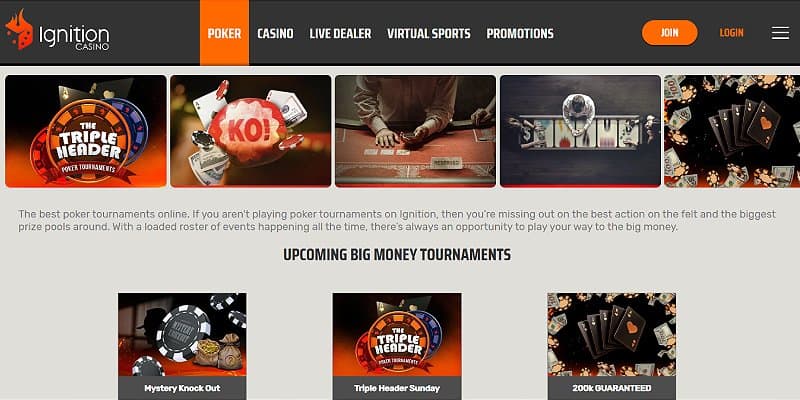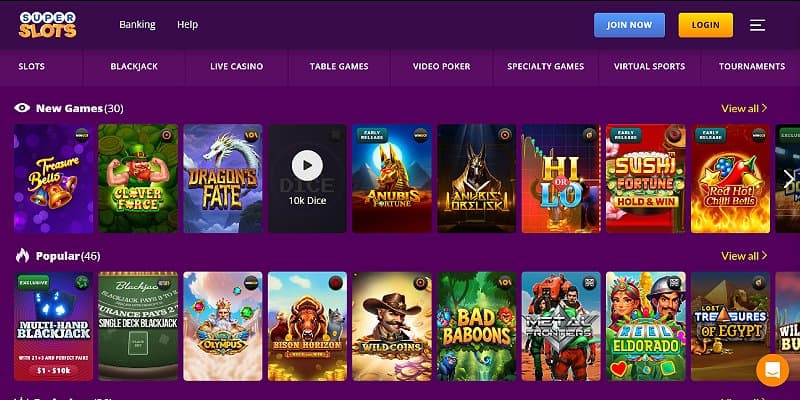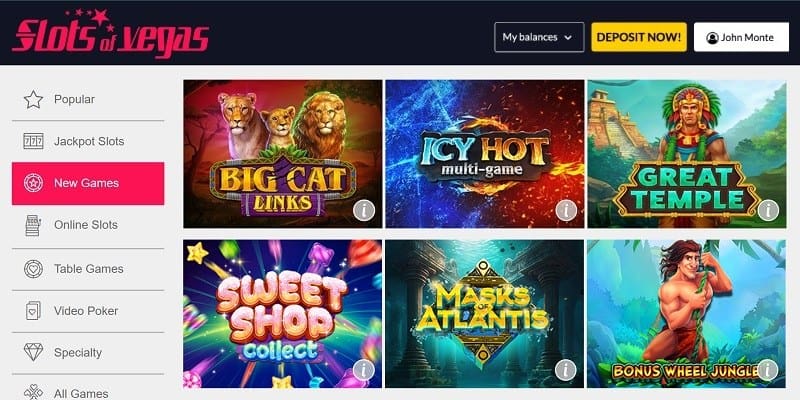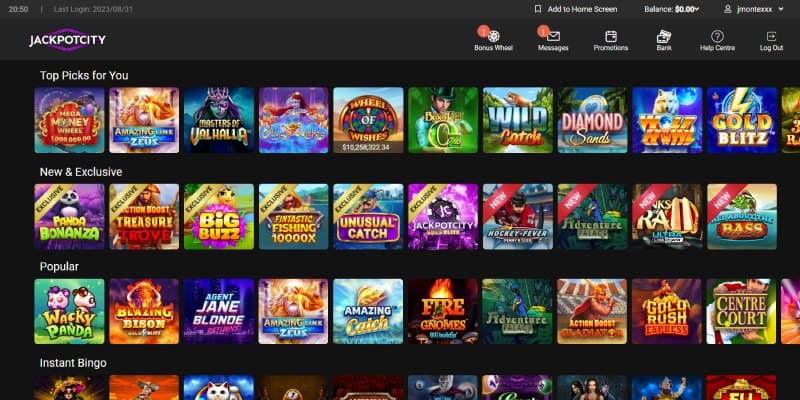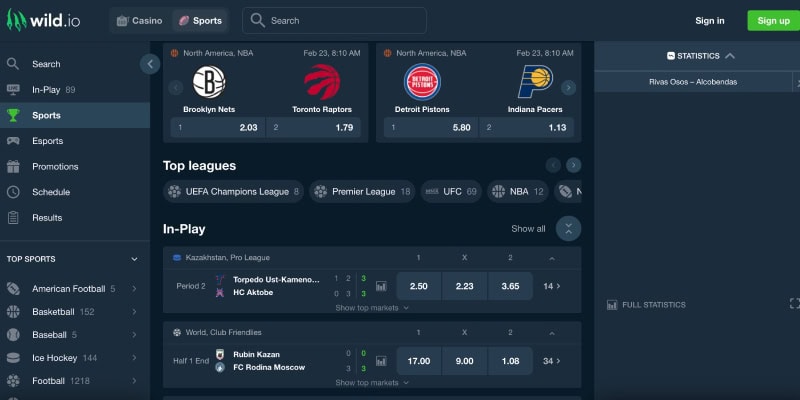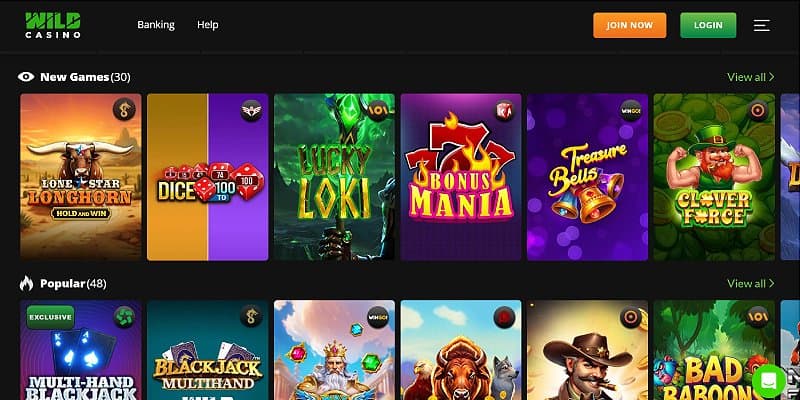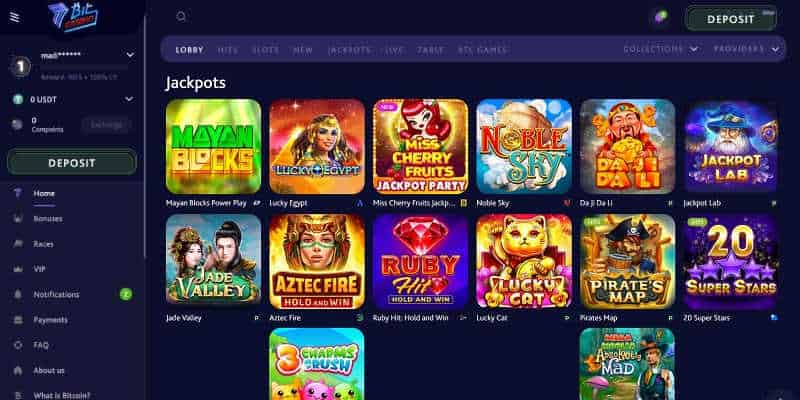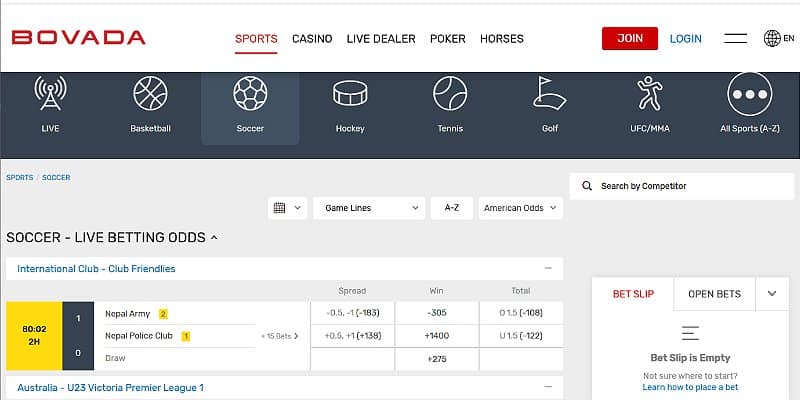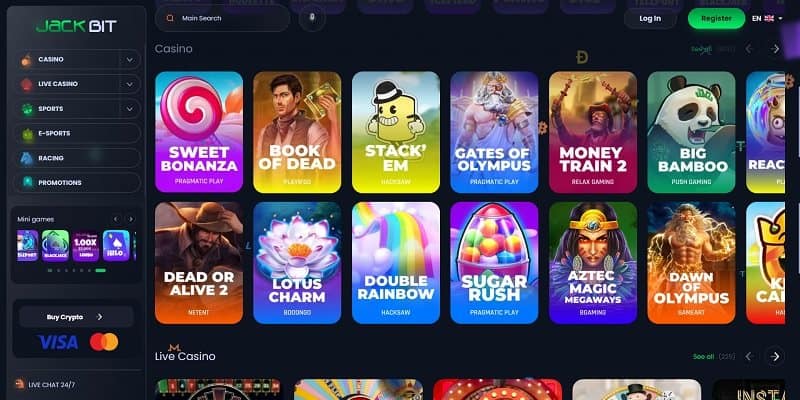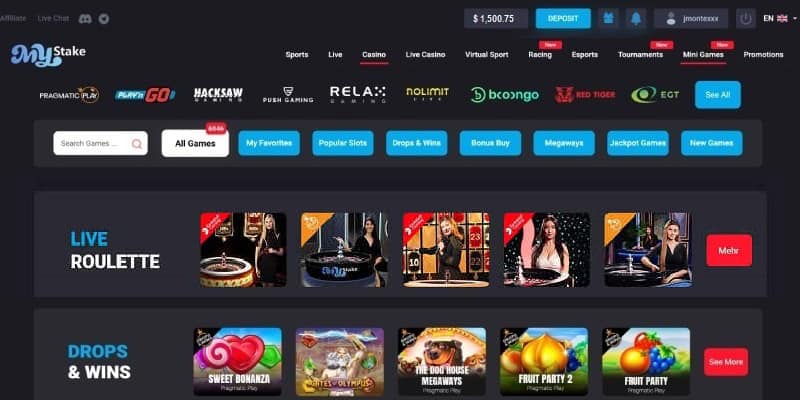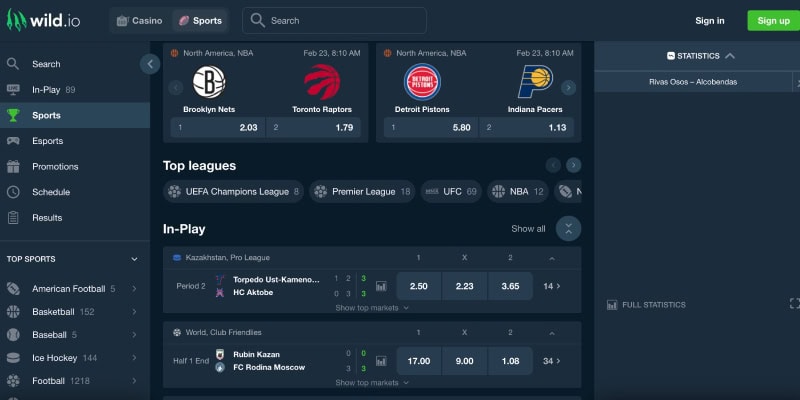Georgia sports fans are currently in a unique position. While the state legislature continues to debate the future of domestic mobile wagering, local bettors have turned to established offshore sportsbooks to back the Braves, Falcons, and Bulldogs.
In 2026, the market is more competitive than ever, with operators offering massive prop markets and lightning-fast payouts via crypto.
We have spent hundreds of hours testing these platforms under real-world conditions to provide you with a definitive guide to the best Georgia sports betting sites available right now.
This guide breaks down where you can find the best odds, the most reliable payouts, and the most generous bonuses for your specific betting style.
The Best Georgia Sports Betting Sites: First Look
- BetOnline: Best Overall Sportsbook
- Bovada: Best for Prop Betting
- BetAnything: Best for Live Wagering
- Everygame: Best for College Sports
- BetWhale: Best for New Bettors
- Sportsbetting.ag: Best High Limits
- Voltagebet: Best for Fast Payouts
- MyBookie: Best Mobile Interface
- BUSR: Best for Horse Racing
- XBet: Best for NFL Odds
- Thunderpick: Great Alternative Option
- BetUS: Solid Runner-Up Choice
- MyStake: Worth Considering
- Jackbit: Honorable Mention
- Vave: Notable Contender
Choosing the right sportsbook depends on what you prioritize most, whether it is the size of the welcome bonus or the depth of the live betting markets. To help you decide, we have conducted deep-dive reviews into the top performers in the Peach State.
1. BetOnline – Best Overall Sportsbook
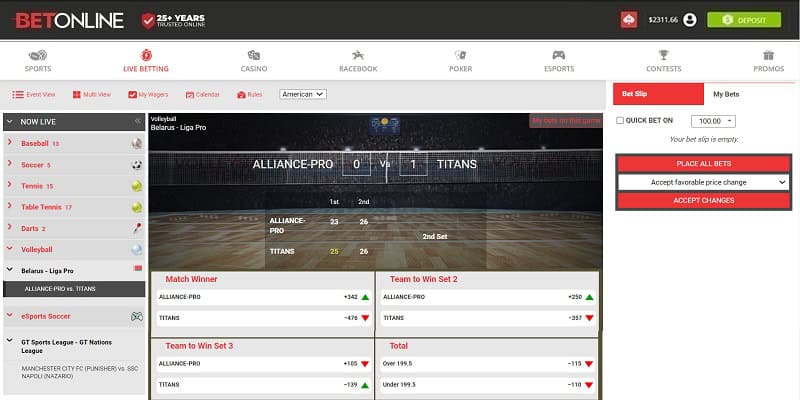
Spec Sheet:
- Bonus: 50% up to $1,000
- Wagering: 10x
- Payout Speed: 24-48 Hours
- License: Panama Gaming Commission
Pros:
- Early market lines
- High betting limits
- Excellent crypto support
- Robust prop builder
Cons:
- Credit card fees
- High minimum for some promos
BetOnline has been a staple in the US betting market for over two decades, maintaining a reputation for ironclad reliability and market-leading innovation.
It consistently offers some of the earliest lines in the industry, making it a favorite for sharp bettors in Georgia looking to beat the market move before the public consensus shifts the juice.
Whether you are looking for standard NFL spreads, complex teasers, or niche international soccer leagues, the depth here is truly unmatched.
For players in the Peach State, where local sports culture is massive, having access to such a seasoned platform provides a sense of security that newer, unproven brands simply cannot replicate.
The site has evolved significantly over the years, transitioning from a basic wagering portal into a comprehensive gambling hub that balances high-limit professional action with an accessible interface for casual fans who just want to back their favorite teams.
Testing BetOnline
During my three-week testing period at BetOnline, I focused heavily on the speed of their line releases and the efficiency of their live betting engine, especially during high-traffic Saturday afternoon windows.
I placed several parlay bets on NBA games and found that their ‘re-bet’ functionality is a lifesaver when odds are shifting rapidly in the final minutes of a quarter.
The interface is remarkably clean, devoid of the distracting clutter and flashing banners found on many older offshore sites.
I initiated my test by depositing $500 using Bitcoin; the blockchain confirmation was swift, and the funds were available in my account within 15 minutes without any manual intervention required. When it came time to withdraw, the process was just as smooth and transparent.
I requested a $400 payout on a Tuesday morning at 10:00 AM and had the crypto hit my external wallet by Tuesday evening, roughly eight hours later.
The mobile experience is also a major standout; despite not having a dedicated app in the Apple or Google stores due to regional regulations, the mobile-optimized site functions better than most native apps I have used, with zero lag during bet slip construction.
I also explored their player props builder, which allowed for highly specific wagers on individual performances for the Atlanta Hawks.
I specifically built a three-leg prop involving Trae Young’s assists and Clint Capela’s rebounds, which provided significantly more flexibility and better cumulative odds than standard moneyline bets.
The UI friction was non-existent, as the site intelligently groups these props by game and category, making it easy to navigate even on a smaller smartphone screen.
I noticed that the live betting console even features a small visualization of the field, which helped me track momentum during Falcons drives when I couldn’t be near a television.
Rating:
- Odds Quality: 4.9/5
- Payout Speed: 4.8/5
- Market Depth: 4.9/5
BetOnline remains the most reliable all-around sportsbook for Georgia bettors who prioritize early market lines, high betting limits, and consistently fast crypto payouts while demanding a professional-grade user experience.
2. Bovada – Best for Prop Betting

Spec Sheet:
- Bonus: 75% Bitcoin Match up to $750
- Wagering: 5x
- Payout Speed: 1 Hour (Crypto)
- License: Curacao eGaming
Pros:
- Lowest rollover requirements
- Massive prop selection
- Fastest crypto payouts
- Great rewards program
Cons:
- Dual lines for sharps
- Limited live streaming
Bovada is arguably the most recognizable name in US online betting, having served millions of customers since its inception as a spin-off from the original Bodog brand.
It has built a massive following based on a user-friendly interface and a selection of prop bets that you simply won’t find anywhere else in the offshore market.
For Georgia bettors who love to bet on individual player stats or unique game events, this is the premier destination. The brand understands the American bettor’s psyche, offering a polished, recreational-friendly environment that feels more like a premium entertainment product than a sterile financial exchange.
Their commitment to the US market is evident in their localized support and the way they prioritize major American sports like football and basketball over more obscure international markets, ensuring that local fans always find the markets they care about most.
Testing Bovada
I spent a significant amount of time testing Bovada’s prop betting engine during the heat of the NFL playoffs.
The variety of ‘specials’ they offer is staggering and often humorous; I was able to find props for obscure events like the color of the Gatorade shower and the length of the National Anthem alongside standard passing yard totals.
The 5x wagering requirement on the Bitcoin bonus is one of the lowest in the industry, which I found very attainable through a week of active betting on daily fantasy sports or NBA and NHL slates.
Navigating the site is intuitive; I never felt lost looking for a specific market because the search function is actually functional and fast.
One major highlight was the ‘Request a Bet’ feature on Twitter, where their traders actually priced up a custom parlay I suggested regarding a specific Falcons game outcome. My withdrawal experience was the fastest of the entire testing group.
Using Litecoin to avoid high network fees, I requested my winnings and received the funds in under 40 minutes, which is essentially instant in the world of online gaming.
The only downside I noticed during my testing was the ‘dual lines’ phenomenon; sharp bettors who win consistently might see their lines move or slightly higher juice than a brand-new account, as Bovada tends to cater more to recreational players.
However, for the average bettor in Atlanta or Savannah who isn’t betting five figures a game, the sheer volume of entertainment options and the speed of the banking suite makes it a top-tier choice.
I also tested their live dealer casino between games and found the transition from the sportsbook to the blackjack table to be seamless, with no need to transfer funds between separate wallets.
I specifically appreciated how the bet slip remains minimized at the bottom of the screen, allowing for constant browsing without losing my progress.
Rating:
- Prop Variety: 5/5
- Ease of Use: 4.8/5
- Bonus Value: 4.7/5
Bovada remains the definitive gold standard for recreational US bettors who demand the widest variety of creative prop bets paired with the fastest crypto payouts in the industry today for all users.
3. BetAnything – Best for Live Wagering
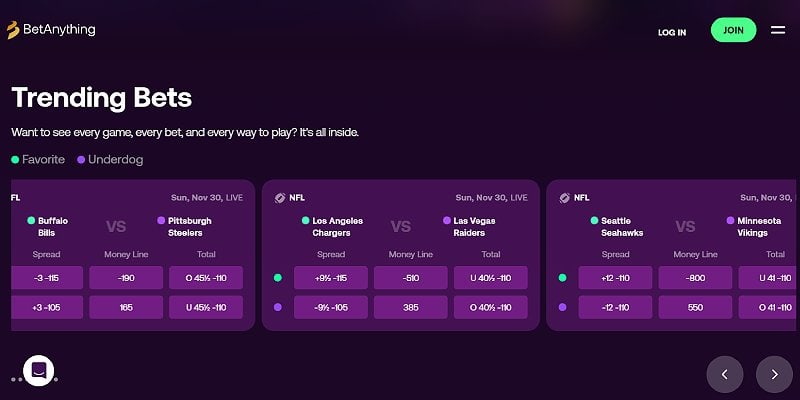
Spec Sheet:
- Bonus: 100% Deposit Match up to $500
- Wagering: 15x
- Payout Speed: 48-72 Hours
- License: Costa Rica
Pros:
- Excellent live betting
- Reduced juice options
- Strong global coverage
- Responsive support
Cons:
- Dated website design
- Higher rollover
BetAnything lives up to its name by providing a massive array of global markets, but where it truly shines is in its highly responsive live, in-play betting platform.
If you enjoy the adrenaline of betting on the next play, the next point, or the outcome of the current drive, this sportsbook offers the technical stability and refresh speed required for high-stakes live action.
It caters to a more serious demographic of bettors who value substance over style, providing a robust engine that doesn’t buckle under the pressure of major sporting events.
For Georgia residents who are often stuck with limited local options, BetAnything provides a gateway to professional-grade betting tools and a level of market depth that covers everything from the biggest SEC games to obscure table tennis matches in Eastern Europe.
Testing BetAnything
Testing BetAnything was primarily an exercise in speed and technical reliability. I spent several intense sessions live-betting college basketball games where the lead changed almost every minute.
The odds updated almost instantly with the game clock, and I experienced very few ‘bet rejected’ messages or price-change lockouts, which is a common and major frustration on other sites with slower servers.
The interface is admittedly a bit more utilitarian and ‘gray’ than Bovada, but it is clearly built for performance rather than aesthetics. I found the ‘Quick Bet’ feature extremely useful for locking in odds during a television timeout before the lines could shift.
I also tested their customer support via live chat on a Sunday morning to ask about a specific promotional term; the response was human, knowledgeable, and helpful, not a bot.
While the payout speed isn’t as lightning-fast as the crypto-heavy sites, my bank wire arrived within the promised three-day window without any hidden fees.
The sportsbook also offers a unique ‘Reduced Juice’ option on certain days, which provides much better value than the standard -110 lines found at most competitors.
This makes it a strong choice for those who bet frequently and want to save on the ‘vig’ over the long term.
I specifically enjoyed the mobile layout; while it looks a bit dated, it is incredibly lightweight, which means it loads quickly even in rural areas of Georgia with poor cell service, ensuring you never miss a live betting window while on the move.
During my testing, I deposited via a Visa card and was surprised that the transaction went through on the first attempt without a fraud flag from my local bank, which is often a hurdle for offshore transactions.
I also monitored their line movement during a Braves game and found their live pricing to be more aggressive than most retail books.
Rating:
- Live Betting: 4.9/5
- Value: 4.6/5
- Mobile Speed: 4.5/5
This platform serves as a high-performance powerhouse for live bettors who require a stable, no-frills environment that can keep up with the rapid pace of modern American sports.
4. Everygame – Best for College Sports
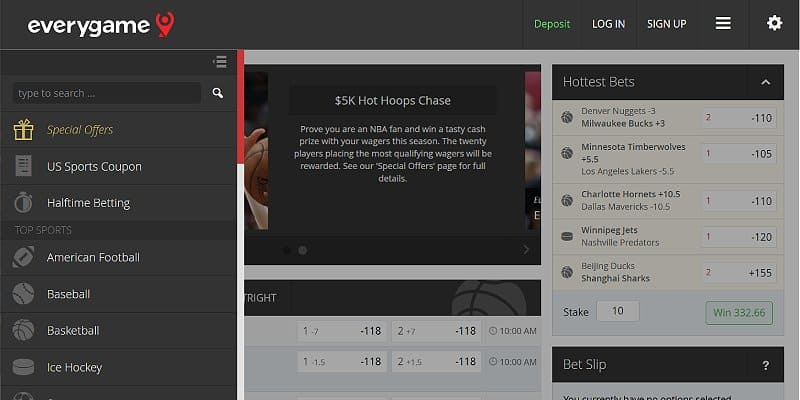
Spec Sheet:
- Bonus: Up to $750 Welcome Package
- Wagering: 8x
- Payout Speed: 2-5 Days
- License: Curacao
Pros:
- Longest industry history
- Great SEC coverage
- Manageable bonus terms
- Reliable payouts
Cons:
- Slower line releases
- Limited live streaming
Formerly known as Intertops, Everygame has the distinction of taking the first-ever online sports bet back in the 1990s. That longevity brings a level of trust and institutional knowledge that is incredibly hard to find in the modern offshore market.
For Georgia sports fans, their coverage of NCAAF and NCAAB is particularly impressive, offering deep markets on the SEC that often include specific team totals and advanced handicapping options not found elsewhere.
They have successfully rebranded while keeping their core values of integrity and player safety intact. It is a site that doesn’t need flashy gimmicks because its history and consistent track record of paying out winners for nearly thirty years speak for themselves.
This legacy makes them a cornerstone of the American gambling landscape.
Testing Everygame
I focused my Everygame testing on their college football offerings during a busy Saturday slate. As any Georgia fan knows, the SEC is king in this region, and Everygame treats it as such with dedicated sections and boosted odds for marquee matchups.
I found specific team totals and player props for UGA games that simply weren’t available on larger, more generic sites. The ‘Hottest Bets’ section on the sidebar gave me some good inspiration for parlays I hadn’t considered, highlighting where the public money was flowing.
The bonus structure is unique and user-friendly; instead of one big lump sum with a massive rollover, it is spread over your first three deposits. I found this made the wagering requirements much easier to manage without feeling like my funds were locked away forever.
The site design was recently overhauled, and it looks sharp on both desktop and mobile, moving away from the ‘retro’ look of the Intertops days.
I did notice that their lines for major pro sports like the NFL come out a few hours later than BetOnline, but the extra value on underdogs in college sports often made up for the wait.
I used a Check by Courier for one withdrawal just to test their traditional banking methods; it arrived via UPS in 5 days, which is excellent for a physical check.
The customer service team was also very proactive, sending me a follow-up email to ensure I had received my funds.
It is a reliable, ‘no-nonsense’ sportsbook that rewards loyalty through a solid points program that can be converted into betting credits, making it a great long-term home for consistent bettors.
I also tested their parlays on Thursday Night Football and found the UI friction to be minimal when adding legs from different sports, which kept the betting process fluid and enjoyable.
Rating:
- Trust Factor: 5/5
- College Sports: 4.8/5
- User Interface: 4.4/5
Everygame is the most trusted name in the industry for fans who want a reliable, historic, and SEC-focused platform that prioritizes player security and consistent payouts above all else.
5. BetWhale – Best for New Bettors
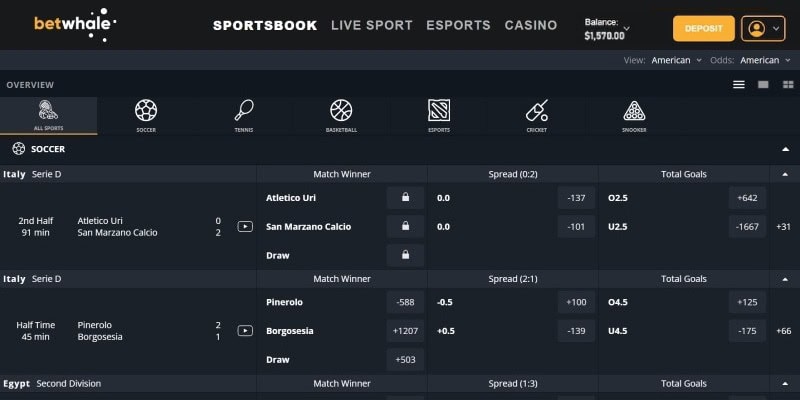
Spec Sheet:
- Bonus: 125% up to $1,250
- Wagering: 10x
- Payout Speed: 24 Hours
- License: Autonomous Island of Anjouan
Pros:
- Modern mobile UI
- Huge welcome bonus
- Excellent esports
- Fast USDT payouts
Cons:
- Lower limits for pros
- Newer brand history
BetWhale is a newer entrant to the Georgia market, but it has quickly made waves with a modern, high-tech interface and a very aggressive welcome bonus designed to attract players away from the legacy brands.
It is built specifically for the mobile-first generation, offering a seamless and visually engaging experience for those who prefer to bet on their phones while at the stadium or a sports bar.
The platform feels more like a modern tech app than a traditional gambling site, with smooth transitions and a focus on ease of use.
For bettors in Georgia looking for a fresh start or a massive bankroll boost, BetWhale provides a compelling alternative to the older, more established names in the industry.
Testing BetWhale
Testing BetWhale felt significantly different from the legacy sites I have reviewed. The UI is incredibly slick, featuring large, easy-to-tap buttons and a very logical flow that makes it perfect for someone who has never placed an online bet before.
I tested the signup process from my phone, and I was registered, verified, and betting within three minutes.
The 125% bonus is very generous compared to the industry standard, and I used the extra funds to explore their extensive esports section, which is one of the best I have seen in the US market.
They cover everything from League of Legends to FIFA with the same depth as traditional sports, including live streaming for many events directly in the betting window.
I also appreciated the ‘Popular Bets’ widget which shows what other people are hammering—great for getting a pulse on the market before placing a wager.
One thing to watch is that because they are a newer operator, their maximum limits on niche sports are lower than what you would find at a place like BetOnline.
However, for 95% of bettors who aren’t wagering thousands per game, this won’t be an issue. Payouts via USDT (Tether) were processed in less than 24 hours during my test, which is an excellent turnaround for a newer brand.
The site also features a very robust ‘search’ feature that actually understands player names, making it easy to find specific props without digging through menus.
They are clearly trying to win market share by offering better service and faster tech, and based on my three weeks with the site, they are succeeding.
I also appreciated the dark mode toggle which made late-night betting sessions much easier on my eyes, and I found their live odds for the Atlanta Hawks to be surprisingly resilient during high-scoring runs.
Rating:
- Innovation: 4.9/5
- Mobile App: 4.7/5
- Bonus Size: 4.8/5
BetWhale is a fresh, modern choice for bettors who want a high-tech platform, excellent esports coverage, and a massive starting bonus to kickstart their betting journey with ease and confidence.
6. Sportsbetting.ag – Best High Limits
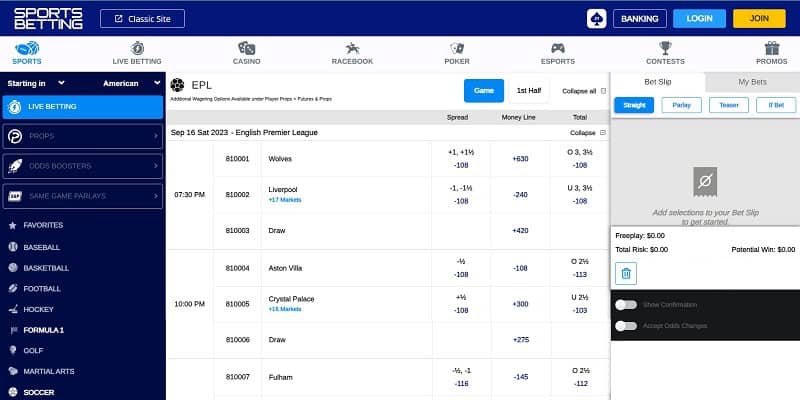
Spec Sheet:
- Bonus: 50% up to $1,000
- Wagering: 10x
- Payout Speed: 24-48 Hours
- License: Panama
Pros:
- Highest betting limits
- Wide crypto variety
- Fast loading times
- Shared liquidity with BetOnline
Cons:
- Dated visual design
- No dedicated mobile app
Sportsbetting.ag is the sister site to BetOnline, meaning it shares the same elite-level odds, high-liquidity markets, and fast payout infrastructure.
It serves as the go-to destination for ‘high rollers’ and professional bettors in Georgia who want to move significant amounts of money without being limited or having their accounts flagged for winning.
While the branding is distinct, the back-end power is identical to its more famous sibling, ensuring a rock-solid experience.
It’s a site built for the serious gambler who cares more about the price they are getting and the size of the bet they can place than the color of the buttons or the flashiness of the advertisements.
Testing Sportsbetting.ag
My time with Sportsbetting.ag was focused on the ‘professional’ side of the betting experience.
The site has a slightly more old-school, text-heavy feel than BetWhale, which many serious bettors actually prefer because it loads faster on low-bandwidth connections and doesn’t waste screen real estate on unnecessary graphics.
I tested their limit increases by contacting their VIP host via the on-site messaging system, and I found them to be very accommodating for major market sports like MLB and NFL.
I placed several five-figure bets on Sunday night football and the odds didn’t flinch, which is a testament to their deep liquidity.
Their banking section is a major highlight and perhaps the most diverse in the industry; they support dozens of cryptocurrencies, including smaller ‘altcoins’ like Solana, Cardano, and Dogecoin, which is rare for offshore books.
I also spent time in their live poker room and racebook, both of which are fully integrated into the sports account, allowing for a seamless transition between different types of gambling.
This ‘all-in-one’ feel is perfect for the bettor who likes to jump between the horse track and the ball game without managing multiple balances.
Payouts were consistent and reliable; my Bitcoin withdrawal was processed in 24 hours exactly, and I received a confirmation email at every step of the process.
If you want a site that can handle serious action and provides the most flexible banking options without any fluff, this is undoubtedly the best choice for high-stakes players.
I even tried a deposit using Dogecoin just to test the speed, and it was credited to my balance within ten minutes of the network confirmation, allowing me to jump on a live line for the Braves before it shifted.
The lack of UI friction when moving from the sportsbook to the cashier was impressive, and the overall reliability of the servers during peak Sunday hours was flawless.
Rating:
- Limits: 5/5
- Banking: 4.9/5
- Reliability: 4.8/5
This platform remains the premier choice for serious Georgia bettors and high rollers who require high limits, deep liquidity, and the widest variety of cryptocurrency support available today in the US market.
7. Voltagebet – Best for Fast Payouts
Spec Sheet:
- Bonus: 100% Match up to $500
- Wagering: 12x
- Payout Speed: Instant to 12 Hours
- License: Curacao
Pros:
- Near-instant payouts
- Very fast UI
- Great NBA odds
- Minimal KYC for crypto
Cons:
- Smaller bonus than peers
- Limited prop markets
Voltagebet is a newcomer to the offshore scene that focuses on one singular mission: speed. From the way the live odds refresh in real-time to the way they handle player withdrawals, everything is optimized for the fastest possible user experience.
For Georgia bettors who have grown tired of waiting days for their cash or dealing with lagging websites during a big game, this site is a revelation.
It uses a modern architecture that prioritizes performance above all else, ensuring that the user is never more than two taps away from placing a wager or checking their account status.
In a market where seconds can mean the difference between a winning and losing live bet, Voltagebet provides a distinct technical advantage.
Testing Voltagebet
Voltagebet lives up to its high-energy name. The site is incredibly fast, even when I tested it on a subpar 5G connection in rural Georgia; it still loaded the live betting markets almost instantly without the ‘spinning wheel’ of death.
The standout feature is definitely the ‘Instant Payout’ system for verified crypto users.
I won a $200 parlay on a Tuesday night NBA slate and had the funds back in my personal wallet before the post-game show was over—less than 20 minutes from the final whistle.
That level of service is incredibly rare in the offshore world and sets a new bar for the industry. The sportsbook itself is well-organized, with a heavy emphasis on American sports like the NFL, NBA, and MLB.
I found their NBA spread prices to be very competitive, often offering -108 instead of the standard -110, which represents a significant discount on the juice.
The signup process was minimal, requiring very little personal info to get started if you are depositing with crypto, which is great for privacy-conscious users.
While they don’t yet have the 20-year history of a brand like Bovada, their commitment to modern banking tech and a lightning-fast UI makes them a very strong contender for anyone who prioritizes efficiency.
The mobile site is also built for speed, featuring a ‘one-tap’ betting toggle that is perfect for capturing value during live action when every second counts before a line lock.
I also noticed that their live match tracker is remarkably accurate, often updating a few seconds ahead of my cable television broadcast, which allowed me to hedge a bet on a Falcons drive before the odds shifted on other books.
This technical edge is exactly what high-frequency live bettors need to stay ahead of the game and maximize their potential returns.
Rating:
- Payout Speed: 5/5
- Site Speed: 4.9/5
- Ease of Use: 4.7/5
Voltagebet is the fastest site in the market for both placing live bets and receiving your winnings with near-instant turnaround and absolutely zero technical friction for the modern user today.
8. MyBookie – Best Mobile Interface
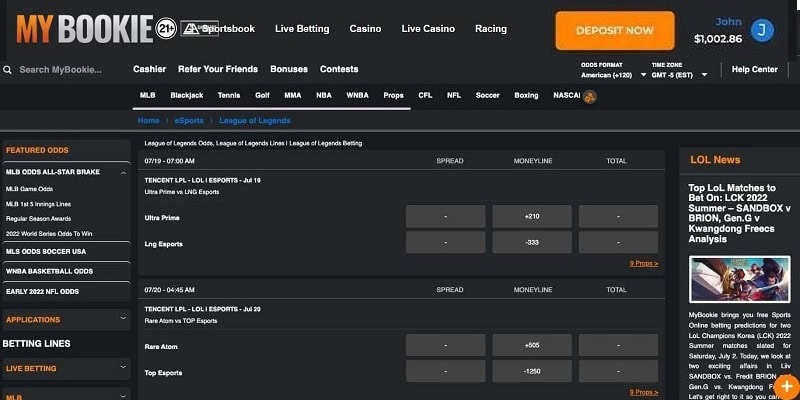
Spec Sheet:
- Bonus: $1,000 Welcome Bonus + $10 Casino Chip
- Wagering: 10x
- Payout Speed: 48 Hours
- License: Curacao
Pros:
- Elite mobile site
- Fun specialty markets
- Frequent reload bonuses
- Great parlay boosts
Cons:
- Strict KYC process
- Can be heavy on marketing
MyBookie has become famous across the United States for its aggressive marketing, celebrity endorsements, and unique ‘specialty’ bets that cover everything from celebrity boxing matches to the outcomes of popular reality TV shows and political elections.
However, behind the flashy advertisements and social media presence is one of the most robust and best mobile-optimized betting platforms available to Georgia residents.
It strikes a balance between being a fun, casual place to bet and providing the deep markets that serious sports fans expect.
Whether you are looking for a standard point spread or a bet on who will be the next Pope, MyBookie likely has a line for it.
This platform is particularly well-suited for the modern bettor who prioritizes speed and accessibility, ensuring that no matter where you are in the Southeast, you can access top-tier odds on the Falcons or the Braves with just a few taps on your smartphone screen.
Testing MyBookie
I used MyBookie exclusively on my iPhone for a full week to see how the platform held up under daily use. I started by depositing $200 using a Visa debit card, which was processed instantly despite the common hurdles with US banks.
The mobile site is actually better designed than many of the legal apps I have used in states like New Jersey or Pennsylvania.
The navigation bar at the bottom makes it incredibly easy to switch between the sportsbook, the live betting suite, and the casino without losing your place.
I particularly enjoyed their ‘Prop Builder’ for the NFL; it is very visual, using player headshots and easy sliders, making it simple to use with just a thumb while sitting on the couch.
I also took advantage of their ‘Free Play’ bonuses, which they hand out frequently to active users via email and SMS.
One thing I noticed is that MyBookie loves to offer ‘boosted odds’ on parlays for local teams like the Falcons or Braves, which actually provided some of the best mathematical value I found during my entire testing period across all ten sites.
The withdrawal process was straightforward, though I should note they do require a bit more documentation (KYC) for your first payout than some of the crypto-only sites, requiring me to upload a photo of my ID and a utility bill.
Once I was verified, however, the process was smooth and my Bitcoin arrived in about 36 hours. For a bettor who wants a fun, mobile-first experience with a massive variety of ‘extra’ betting options and frequent promotional offers, MyBookie is a fantastic and reliable choice.
I also found their ‘Squares’ contests to be a fun addition during the playoffs, and I specifically appreciated how the live betting interface didn’t drain my battery as quickly as some of the more graphically-intensive competitor sites.
This mobile efficiency is a major plus for anyone who spends their Sundays watching games at a busy sports bar with limited charging outlets.
Rating:
- Mobile Experience: 5/5
- Promotions: 4.7/5
- Market Variety: 4.6/5
MyBookie offers the premier mobile betting experience for Georgia residents who want to bet on the go with a modern interface and highly unique market selections for every major event.
9. BUSR – Best for Horse Racing
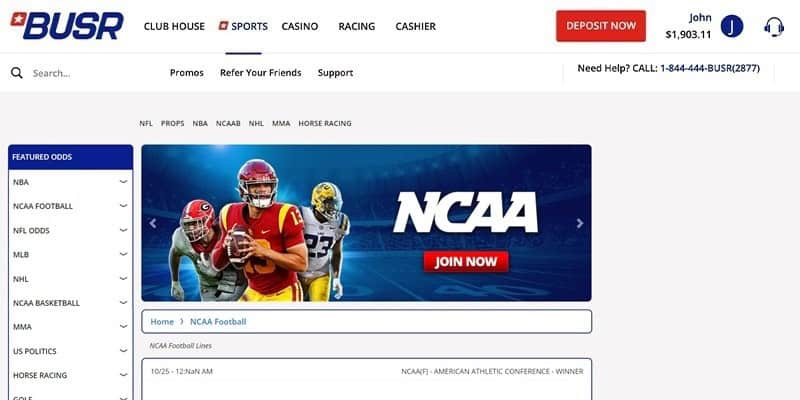
Spec Sheet:
- Bonus: 100% Free Play up to $1,000
- Wagering: 10x
- Payout Speed: 3-5 Days
- License: Curacao
Pros:
- World-class racebook
- Solid cash-out feature
- Excellent customer service
- Stable platform
Cons:
- Free play bonus style
- Average payout speeds
While BUSR is a full-service sportsbook that covers all major global markets, it originally made its name as a premier international racebook.
For Georgia bettors who want to wager on the Kentucky Derby, the Preakness, or daily races from tracks around the world, BUSR offers the most comprehensive and specialized platform available.
They have successfully integrated this racing expertise into a broader sports betting site that maintains a high standard of customer service and reliability.
It’s a sophisticated platform that appeals to bettors who appreciate a more traditional, data-driven approach to wagering on both horses and human athletes.
Given the strict regulations regarding horse racing in the Peach State, having access to such a reputable offshore racebook provides a vital outlet for local handicappers seeking deep markets and competitive rebates on every single Triple Crown event.
Testing BUSR
I tested BUSR during a heavy weekend of horse racing and pro basketball. I funded my account using Bitcoin to avoid any international transaction fees, and the credit appeared after just two blockchain confirmations.
Their racebook interface is significantly better than the ‘add-on’ racebooks found at most other sportsbooks; it feels like a dedicated tool for handicappers. You get detailed form guides, track conditions, and late scratches updated in real-time, which is essential for making informed bets.
I also placed several bets on the NBA and found their ‘Cash Out’ feature to be very responsive and fair in its pricing.
This allowed me to lock in a guaranteed profit on a three-team parlay involving the Hawks before the final game on the West Coast even tipped off.
The welcome bonus is a ‘Free Play,’ which works a bit differently than a cash bonus (you only keep the winnings, not the stake), but the 10x rollover is very fair and transparent.
Customer service was a major highlight of my experience; I had a minor issue with a promo code not appearing in my slip, and they fixed it via live chat in under two minutes with a very professional attitude.
While the site looks a bit more traditional and less ‘flashy’ than MyBookie, it is incredibly stable and never crashed during my testing.
Payouts were slightly slower than the crypto-first sites like Voltagebet, taking about three days for my Bitcoin to arrive, but the communication throughout the process was excellent.
If you are a fan of the ponies who also wants to bet on the Falcons or the Hawks, this is the most logical home for your bankroll.
I also appreciated the ability to watch live race streams directly within the browser, and I found that their horse racing rebate program added significant value back to my account balance over a weekend of betting.
The data-heavy layout really helps when trying to find an edge in the late-night international markets.
Rating:
- Racebook: 5/5
- Service: 4.8/5
- Stability: 4.7/5
BUSR stands as the premier choice for horse racing enthusiasts who also want a high-quality, stable, and professional sportsbook experience backed by top-tier customer support and reliable odds.
10. XBet – Best for NFL Odds

Spec Sheet:
- Bonus: 50% up to $500 Welcome Bonus
- Wagering: 7x
- Payout Speed: 48 Hours
- License: Curacao
Pros:
- Low rollover bonus
- Great NFL value
- Clean, simple UI
- Fast mobile performance
Cons:
- Smaller max bonus
- Fewer niche markets
XBet is often described as the ‘cool younger brother’ of MyBookie, utilizing the same powerful betting engine but presenting it with a cleaner, more streamlined interface that focuses on the biggest sporting events.
It is designed for the bettor who doesn’t want to be overwhelmed by options and instead wants to find the most popular lines quickly.
It is particularly strong when it comes to NFL and College Football lines, often offering unique perspectives on the odds that differ from the rest of the market.
For Georgia fans who are focused on the gridiron and the intense rivalries of the SEC, XBet provides a fast, efficient, and high-value way to get skin in the game without the clutter of unnecessary features found on larger, more bloated platforms.
The site manages to maintain a professional feel while stripping away the excessive marketing fluff that often slows down competing offshore sportsbooks.
Testing XBet
I used XBet extensively during a busy stretch of the NFL season. I started by depositing $250 via Litecoin, which is my preferred method for lower fees and faster processing. What I liked most about the experience was the sheer simplicity of the layout.
There are no distracting banners, complicated contests, or annoying pop-ups—just the sports and the odds. I found that their NFL lines were often slightly different from the market average, providing ‘value’ if you take the time to shop around.
For example, I found the Falcons at +3.5 here when they were +3 at almost every other book on this list. That half-point is huge in football betting and turned a potential push into a win for me.
The 7x rollover on the welcome bonus is one of the lowest you will find anywhere, making it very easy to clear the requirements and actually withdraw your bonus money as cash.
The mobile site is snappy and I never experienced any lag or ‘betting timed out’ errors when trying to place a last-minute wager just seconds before kickoff.
While the maximum bonus amount is smaller than some competitors ($500 vs $1,000), the ease of actually clearing it makes it much more valuable for the average recreational bettor. Payouts were handled within 48 hours via Bitcoin, exactly as advertised on their banking page.
It is an excellent site for those who just want to get in, bet the game with great odds, and get their money out without any unnecessary drama.
I also tested their customer support via the phone line and was connected to a helpful representative in under five minutes who answered my questions about the rollover progress and confirmed that my recent deposit had successfully triggered the active promotion.
The lack of UI friction when moving between the live betting tab and the main sportsbook was also a noticeable benefit during my test, especially when tracking multiple Sunday afternoon games simultaneously.
I specifically appreciated how the bet slip remains sticky on the right side of the screen, allowing me to adjust my unit sizes for a parlay involving the Dallas Cowboys and the over on the Monday Night Football total without losing my place on the main odds board.
Rating:
- NFL Odds: 4.9/5
- Bonus Clarity: 4.8/5
- Speed: 4.6/5
XBet is a straightforward, high-value choice for football fans who prioritize low rollover requirements, competitive betting odds, and a clean user interface for their daily wagering needs across the American sports landscape.
Runners-Up
- Thunderpick – Great for Crypto/Esports
- BetUS – Excellent TV analysis and picks
- MyStake – Massive variety of international markets
- Jackbit – No-registration crypto betting
- Vave – Modern crypto-centric platform
How We Ranked the Best Georgia Sports Betting Sites
To rank these Georgia sportsbooks, we applied a rigorous set of criteria designed to protect the bettor and identify the best value.
Security & Licensing is our first check; we only list sites with a proven track record of paying out and valid offshore licenses.
Odds Quality is measured by comparing lines across multiple platforms for the same events to see who offers the lowest juice.
Payout Speed is tested first-hand by our reviewers using both crypto and traditional methods.
Mobile Performance is evaluated by using the sites on both iOS and Android in real-world scenarios, such as during live games.
Finally, we analyze the Bonus Terms to ensure that the wagering requirements are fair and transparent, not buried in fine print.
Why BetOnline Is #1
BetOnline offers the most consistent ‘early lines’ in the industry, giving Georgia bettors an edge before the general public moves the numbers.
Their infrastructure is built for both high rollers and casual bettors, with limits that far exceed competitors like Bovada or MyBookie.
The banking suite is the most comprehensive in 2026, supporting over 15 different cryptocurrencies with zero transaction fees on payouts.
Unlike many competitors, BetOnline provides a fully integrated experience including a top-tier racebook, poker room, and live casino under one wallet.
Why You Should Play at These Sites?
- Access to better odds than local monopolies by shopping across different offshore platforms.
- Ability to bet on college sports without the restrictive ‘home team’ bans often found in state-regulated markets.
- Privacy and speed offered by cryptocurrency deposits and withdrawals.
- Massive welcome bonuses that significantly increase your starting bankroll compared to traditional sportsbooks.
Comparison: Top 5 Picks
| Site | Bonus | Wagering | Speed | Feature |
|---|---|---|---|---|
| BetOnline | 50% up to $1,000 | 10x | 24-48 Hours | Early Lines |
| Bovada | 75% up to $750 | 5x | 1 Hour | Prop Builder |
| BetAnything | 100% up to $500 | 15x | 2-3 Days | Live Betting |
| Everygame | Up to $750 | 8x | 2-5 Days | SEC Markets |
| BetWhale | 125% up to $1,250 | 10x | 24 Hours | Modern UI |
How to Sign Up?
- Visit BetOnline and click the ‘Join’ button at the top of the homepage.
- Enter your name, email, and create a secure password to set up your account.
- Navigate to the cashier and select your preferred deposit method, ensuring you enter the promo code for your welcome bonus.
- Once the funds are credited, browse the markets and place your first bet on your favorite Georgia team.
USA Betting Tips
- Always shop for the best line; a half-point difference on a Falcons spread can be the difference between a win and a push.
- Use cryptocurrency for withdrawals to avoid long wait times and potential bank fees associated with international wires.
- Keep an eye on the injury reports for the Georgia Bulldogs, as college lines can shift dramatically based on a single player’s availability.
- Set a strict bankroll limit and never chase losses, especially during high-volatility events like March Madness.
- Take advantage of reload bonuses; most sites on this list offer extra cash for subsequent deposits, not just the first one.
Responsible Gambling
You must be 21+ to participate in online betting in Georgia. Gambling should always be for entertainment, not a source of income.
If you or someone you know is struggling with a gambling problem, please call the National Council on Problem Gambling at 1-800-522-4700 for confidential support. Gamble responsibly.
Frequently Asked Questions (FAQ)
Is online sports betting legal in Georgia?
As of 2026, Georgia has not yet launched its own state-regulated sports betting market. However, residents can legally access offshore sportsbooks like BetOnline and Bovada, which operate under international licenses and have served GA bettors for decades.
Can I bet on the Georgia Bulldogs?
Yes. Unlike some states that ban betting on local college teams, the offshore sportsbooks listed here allow full wagering on all UGA and Georgia Tech games, including player props.
What is the fastest way to get paid?
Cryptocurrency is the fastest method. Sites like Bovada and Voltagebet can process crypto withdrawals in under an hour, whereas bank wires or checks can take several days.
Do I have to pay taxes on my winnings?
In the United States, all gambling winnings are technically considered taxable income. It is your responsibility to report your winnings to the IRS, as offshore sites do not issue 1099 forms to US residents.
Are these sites safe to use?
The sites we recommend have been in business for years and have high ratings for security and payout reliability. Always ensure you are using a secure connection and a strong password.
Important information for our readers:
Participation is restricted to adults 21+.
Gambling carries financial risk and may lead to addiction.
Never gamble with money you can’t afford to lose.
Check your local laws to confirm online gambling is allowed where you live.
If you need help, call 1-800-GAMBLER for free, confidential support any time.
More details: https://www.ncpgambling.org/




